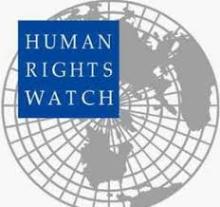Resource information
This report describes the pervasive property rights violations which women are subject in Kenya. It describes women's rights in the country more generally and focuses on how widows, daughters, divorced women and married women are discriminated against and deprived of secure access to land and other resources. The report also makes recommendations to the government of Kenya as well as to donors and international organisations.
[From the HRW website] Women throughout Kenya lose their homes, land, and other property due to discriminatory laws and customs, Human Rights Watch said in a new report released today. Human Rights Watch said property rights abuses in sub-Saharan Africa perpetuate women's inequality, doom development efforts, and undermine the fight against HIV/AIDS. This 51-page report examines the devastating impact of women's property rights violations in Kenya, where the constitution condones discrimination in property matters. These violations and their impact are magnified by Kenya's high HIV/AIDS prevalence.
HIV-positive women, already harmed by stigma and discrimination, are gravely threatened by property rights violations. Women's insecure property rights also hinder development by contributing to low agricultural production, food shortages, underemployment, and rural poverty. Human Rights Watch said that with a new government in office, movement toward a new constitution, and an upsurge in donor support, now is a pivotal time to improve women's property rights.
You can download this report from the website of Human Rights Watch.


